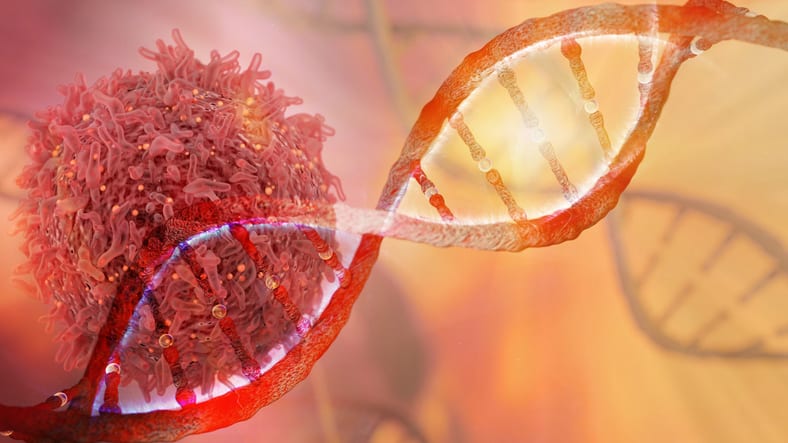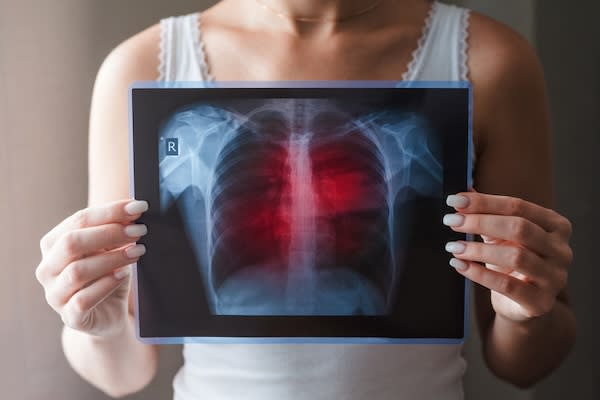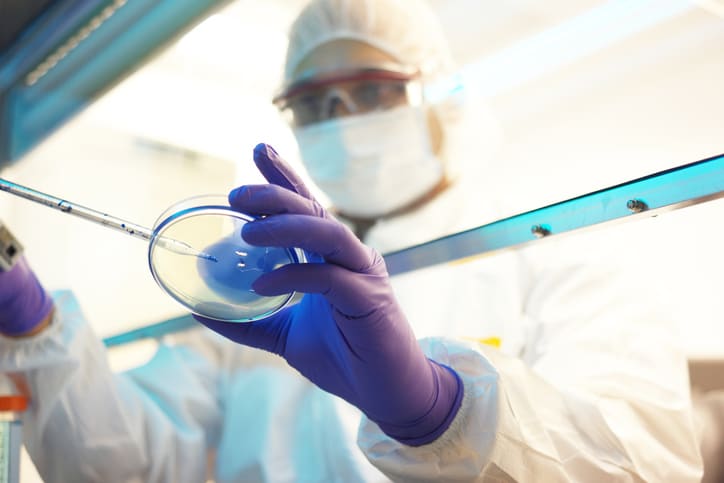Robotic Colon & Rectal Surgery
Robotic Precision for Complex Colorectal Procedures
Complex colorectal cancers call for advanced care. At the Providence Swedish Cancer Institute, our surgical experts use robotic-assisted techniques to perform advanced colon and rectal procedures through smaller incisions, helping reduce pain, lower the risk of complications, and support a faster return home.

Treatment Overview
Robotic colon and rectal surgery is a minimally invasive procedure used to treat certain types of colon and rectal cancers, including cases where cancer has spread to nearby organs. This approach allows your surgeon to remove tumors or sections of your colon and make precise repairs with the help of advanced technology.
Through a few small incisions, your surgeon inserts specialized instruments, including a camera that provides a magnified view inside the body. From a nearby console, your surgeon uses hand controls to guide the robotic arms with steady, highly accurate movements. This precision may reduce pain, minimize blood loss, and support a faster recovery.
At the Providence Swedish Cancer Institute, our expert colorectal surgeons are highly experienced in robotic-assisted techniques, offering advanced care with a focus on safety, effectiveness, and your overall well-being.
What to Expect
At the Providence Swedish Cancer Institute, we’ll guide you through the planning stages of your surgery through to discharge, recovery, and future treatment if needed. Your care team is here to support your physical healing, emotional well-being, and personal goals, so you can move forward with confidence.
About a week before surgery, we'll schedule a pre-admission visit to:
- Assist with any remaining pre-surgical lab work or tests
- Review what will happen during your surgery
- Explain potential side effects
- Discuss medications and post-surgery care, including in-home help or equipment if needed
You'll receive information to prepare for your hospital admission. If you have any questions after your pre-admission appointment, you can reach out to your nurse or care coordinator, who will be happy to help.
Most people who have robotic colon and rectal surgery stay in the hospital for 3 to 6 days. You might have to stay longer if your surgery was complex. Before you can go home, your care team needs to know that you’re able to eat, pass gas or have a bowel movement, and move around on your own. Your care team will give you instructions on how to manage your pain, monitor your recovery, and what you can do and what you should avoid, like lifting or strenuous activity, as you heal.
Robotic colon and rectal surgery typically results in a shorter hospital stay, less pain, a lower risk of infection, and less scarring than traditional open surgery. When suitable, robotic-assisted surgery may support a faster recovery — benefiting both physical healing and emotional wellbeing.
As with any surgery, there are risks, including:
- Infection
- Bleeding
- Delayed wound healing
- Scarring
- Leaking in the intestinal wall where the repair was made
- Injury to nearby organs
- Blood clots
- Bowel obstruction
Your care team will talk with you about these risks, answer your questions, and help you make an informed decision that aligns with your goals.
You’ll have several follow-up appointments after your procedure for the first few weeks. This helps us monitor your healing and manage any complications. As time goes on, your appointments will be less frequent, but regular checkups are required so that we can continue to manage any of your ongoing treatment needs and watch for any signs of recurrence.
Services are also available to help you through every treatment stage.
Learn more about our supportive care services.
Frequently Asked Questions
Robotic surgery is a minimally invasive procedure. Unlike traditional surgery, where surgeons make large incisions to better access your tumor or organs, robotic surgery requires just a few quarter- to half-inch incisions for surgeons to insert their instruments. These robotic tools are more precise and can reach areas that might be awkward by hand, making their work more exact.
Because patients have smaller incisions, this typically means less pain, fewer complications, and faster healing post-surgery.
Whether you’re a candidate for robotic surgery depends on your diagnosis and cancer type. For example, if your surgeon needs to perform several procedures, such as removing more than one section of bowel, an open surgery might be more appropriate.
Some people who have other medical issues, such as problems with their heart, lungs, or liver, might also not be candidates for robotic surgery. Your surgeon will talk to you about your options, your goals, and what is right for your particular situation. Together, you’ll decide if robotic surgery is the right approach for your care.
If you’ve had bowel surgery, it’s important that your care team knows that you can pass gas or have bowel movements before your discharge, because this means that your bowels have started working again. Sometimes the anesthetic, the surgery itself, or the pain medications you take after surgery can slow down how your bowels move. If they aren’t moving well, there could be complications, like nausea, vomiting, constipation, and perhaps bowel blockage, which are better addressed before you leave the hospital.
Recovery time from robotic surgery is typically faster than traditional surgeries, and most people can return to their usual activities within a few weeks. For the first few days, you might feel sore and fatigued. Your care team will advise you about what you should and shouldn’t do as you heal, like lifting heavy objects or doing strenuous activities. It’s important to take your time and listen to your body. Your care team will check on you about your progress, and you can talk to them if you experience any problems.
Most people can return to their normal diet after their colon or rectal surgery, but not immediately. Right after surgery, you’ll start with fluids, then soft foods, and gradually more foods that are part of your regular diet. Your care team will talk to you about what you can eat when you get home and what you should avoid — for example, high-fiber foods can be irritating to the colon, beans can cause gas and bloating, and high-fat foods can cause diarrhea. Your care team might also advise you to avoid large meals to avoid discomfort or bloating while you heal.
This surgery can affect bowel function, depending on the type and location of the procedure. If your surgery involves the upper part of your colon, you may experience looser or more frequent bowel movements for a few weeks, which often improves over time. If the surgery was closer to or involves the rectum, you may have temporary difficulty with bowel control, including urgency or increased frequency. In some cases, changes in bowel function may be long-lasting. Your care team will work with you on strategies to manage these symptoms and support your recovery.
We provide a full range of supportive care services to support you during and after your cancer treatment. Some of these services include:
- Art therapists
- Cancer rehabilitation (onco-physiatry)
- Care coordinators
- Genetic counseling (cancer geneticist)
- Health educators
- Medical massage (edema, lymphedema management)
- Music therapist
- Naturopaths
- Nutritionists
- Oncology nurses
- Social workers
- Speech and language pathology
We can also help with finances, food, transportation, and other challenges for eligible patients through our patient assistance fund.
See the full list of supportive care services.
Note: Some services are provided by local partners and vary based on location. Please contact your clinic for more information.
News & Info From Our Experts



